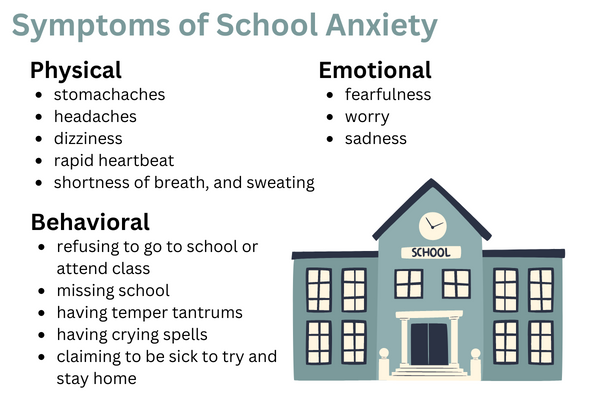Would you like going to school and feeling tense, nervous, unable to relax or have the feeling that people are looking at you? I know this feeling is called anxiety and a lot of people suffer from it. “Approximately 7% of children aged 3 through 17 experience issues with anxiety each year” wrote the National Alliance on Mental Illness.
Anxiety can come from a lot of different things such as trauma, stress due to an illness and/or stress that has buildup, other mental health disorders, and drugs or alcohol. But I’m not going to talk about any of those. Yes, those are all important and if you are experiencing any of those you should talk to an adult or someone you trust (teacher, sibling, school counselor). The cause that I will be talking about is how school is causing teens to have anxiety. “School can be a source of anxiety for any kids and young adults. It’s a setting filled with expectations to succeed, large groups of people, opportunities for bullying, and more. School anxiety can cause students of all ages to feel overwhelmed at the thought of stepping foot on campus,” MedicalNewsToday stated in their article “School anxiety: Causes, symptoms, and management.”
School is a very stressful place, there are so many factors in it. There is your class and keeping up good grades, in sports there is practice and games, and clubs such as FBLA, FFA, National Honor Society and many more and those are things that take time. And on top of that some kids have jobs and have chores to do at their homes. All of that added up there isn’t really time for someone to relax.
There is actually something called school anxiety, this involves fear and worry about going to school. Some doctors may also refer to it as school phobia, and school anxiety is something that mental health professionals do not completely understand the causes of. For some kids the fear and worry associated with school anxiety is related to a specific cause, such as being bullied or having an experience at school. But other causes may be social anxiety. Some physical symptoms may include stomachaches, headaches, dizziness, rapid heartbeat, shortness of breath, and sweating. There are also emotional and behavioral symptoms, some emotions are fearfulness, worry, and sadness. Behavioral symptoms are refusing to go to school or attend class, missing school, having temper tantrums, having crying spells, claiming to be sick to try and stay home.

Some ways that you can deal with school anxiety are talking openly about your feelings and mental health, checking your priorities, getting help from a therapist, and considering a change of environment. These are all ways that can help you deal with and even make the anxiety go away. Anxiety is something that can really affect a person and the people around them, you can let it run your life and what decisions you make or you can try and get help. There is always someone that cares about you and wants you to be healthy and happy. Don’t be afraid to ask for help.
– by Halley Mickelsen, student at Piute High School
Feature image caption: Children, teens, and adults can all experience school anxiety.
Read more youth reactions to anxiety in Understanding and Addressing Anxiety in Teens by Brandi Sylvester.
Contributor
Halley Mickelsen is a contributing writer from Piute High School. From time to time, The Byway receives submissions from high school kids, and we almost always publish these submissions. Sometimes the youth surprise us with their ideas, but it is certainly a joy to see what this generation has to say about the world and their place in it.

